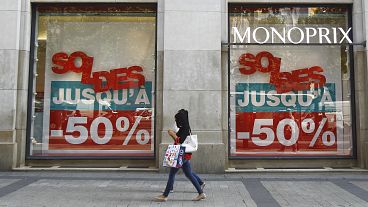By Tetsushi Kajimoto
TOKYO (Reuters) - A growing number of Japanese firms are raising prices as they grapple with a jump in materials, transportation and labour costs, although a slim majority remains skittish about doing so, a Reuters poll shows.
The results highlight apparent progress, albeit slow and uneven, in Prime Minister Shinzo Abe's fight to rid Japan of deflation - seen as the root of decades of economic malaise.
But analysts say that because higher costs and not growth in demand are behind the price rises, the danger is that consumers are more likely to keep a lid on spending over the longer-term, complicating the country's path to sustainable growth.
Some 45 percent of firms in the May 9-21 Reuters Corporate Survey say they have raised or plan to lift prices in the financial year that began last month. Around half plan to keep prices steady and 4 percent are looking at lowering prices.
"Raw materials, personnel costs, the cost of transport - they've all risen as a matter of course and we don't have the ability to absorb that any more," wrote one manager at a metals firm.
By comparison, in January 37 percent of companies said they had raised or were planning to lift prices this year, while the rest were thinking of keeping them flat or reducing them.
Prices for raw materials have shot up on higher oil and commodity prices and due to a weaker yen, which has declined nearly 5 percent against the dollar since March. At the same time, Japan's ageing population has meant that many sectors, particularly service industries, are grappling with a labour shortage that is pushing up wages.
"If we can't pass on price rises, we won't be able to continue in business," wrote a steel company manager.
In one high-profile example, parcel delivery firm Yamato Holdings Co Ltd hiked home delivery prices by around 15 percent last October, the first such rise in almost three decades, and followed up with bigger hikes for corporate customers.
Some 540 big and medium-sized businesses were polled in the survey, conducted by Nikkei Research on behalf of Reuters. Around 230 firms responded to questions about pricing with their answers kept anonymous so they can express opinions more freely.
Japanese policymakers contend the world's third largest economy is no longer in deflation - a state of broad and sustained declines in prices as consumers hold out for even better deals - but they worry about the risk of a relapse.
Progress has come only after more than five years of aggressive monetary stimulus and even so inflation remains below 1 percent. That slow pace has forced the central bank to drop a timeframe for meeting its elusive 2 percent inflation target.
Half of firms are also still reluctant to pass on prices, even if that means higher costs eat into profit margins.
"Once prices are hiked, things stop selling," an official at a machinery maker wrote.
Mass-merchandise retailers have it particularly hard due to fierce competition from e-commerce and discount stores. Supermarket operator Aeon Co has continued to cut prices, most recently on 100 of its own brand everyday goods in January by an average of 10 percent.
"It's a tug of war between raw materials costs and weak demand in determining prices," said Masaki Kuwahara, senior economist at Nomura Securities. "Companies have not shaken off the deflationary mindset as their pricing power remains weak."
(Reporting by Tetsushi Kajimoto; Editing by Malcolm Foster and Edwina Gibbs)



